Orlando Police Officer Adam Gruler was in charge of security at the Pulse nightclub on June 12, 2016 when he heard gunfire on the dance floor, followed by a chorus of screams in the dark. He sprung into action, authorities say, twice exchanging gunshots with the shooter and calling for backup. He was instantly lauded as a hero, receiving a valor award and an invitation to the State of the Union. Praise came from all over.
Then Gruler was sued. Nearly two years after the massacre, a group of survivors claimed in federal court that Gruler didn’t do enough to stop the gunman, Omar Mateen, who killed 49 people and injured 53 others. The victims said Gruler “abandoned his post” at the front door, allowing Mateen to stroll into the crowded nightclub with a handgun and a semi-automatic rifle. The suit also named the city and 30 unnamed police officers, accusing them of not entering the club fast enough to “neutralize” Mateen, who died in a shootout with police after a three-hour standoff. “We deserved better,” victim Keinon Carter said at a news conference in June 2018 when the lawsuit was announced.
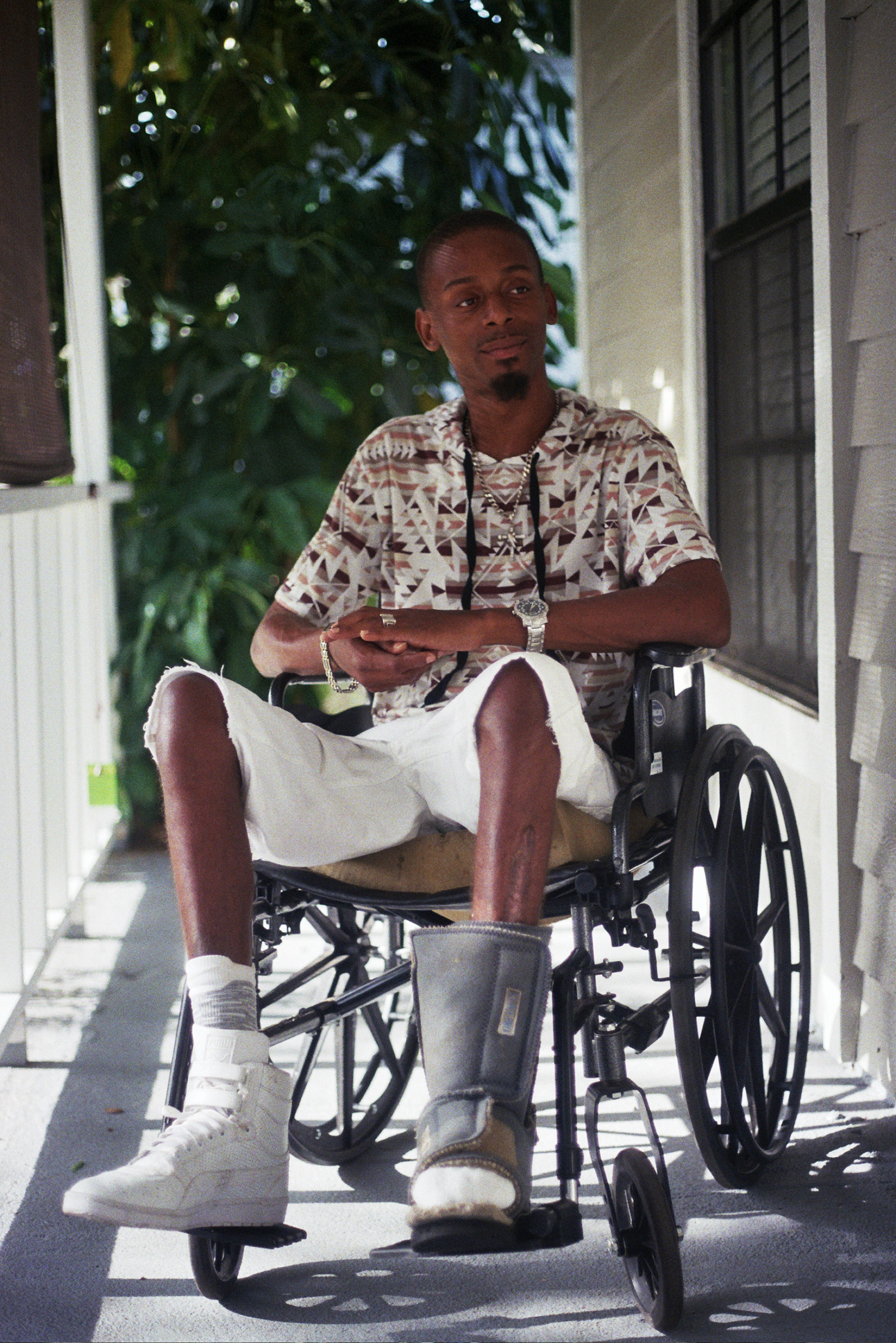
It’s common for litigation to follow mass shootings and for mourning families to mount civil suits against a wide-ranging cast of defendants, a byproduct of what lawyers say is the government’s failure to tackle the gun problem. Besides targeting Gruler, family members of slain Pulse victims and survivors also sued Google, Facebook, Twitter, the gunman’s employer, his wife and Pulse owner Barbara Poma, who has called the lawsuit “frivolous” and driven by “out-of-state personal injury lawyers.” The plaintiffs accused Poma of failing to provide adequate security. “I know that she is not a bad person,” Aryam Guerrero, whose brother was killed at Pulse and whose family is among those suing Poma, tells TIME. “But in this day and age, with all the mass shootings, there should have been more security there. She should have known better.”
A flurry of lawsuits were also filed after 58 people died at the Route 91 Harvest Festival shooting in Las Vegas in 2017—the worst mass shooting in modern U.S. history. More than 450 victims are suing the owners of the Mandalay Bay Resort and Casino, where Stephen Paddock opened fire into the crowd; the promoters of the country music festival; and Paddock’s estate. And in Tennessee, where a gunman killed four people at a Waffle House restaurant in 2018, victims’ families sued the suspected shooter’s father for negligence and the city for “extreme recklessness,” alleging that its 911 dispatchers sent emergency responders to the wrong Waffle House, nearly nine miles away.
“America is a litigious society,” says Robert Spitzer, a gun policy expert and chairman of the political science department at the State University of New York at Cortland. But these aren’t frivolous lawsuits, he says; they’re a result of the lack of legislation that might prevent mass shootings. “The legal avenue becomes a way to try and at least hold people responsible when the political system has failed to a great degree to act,” Spitzer says. Attorney Josh Koskoff, who’s representing families of victims of the 2012 Sandy Hook school shooting in Connecticut, agrees and says a federal law protecting gun makers has opened the door to “scapegoating” of people who shouldn’t be blamed for mass shootings.
The law, formally known as the Protection of Lawful Commerce in Arms Act (PLCAA), largely shields firearm and ammunition manufacturers and sellers from liability when their products are used in crimes. It’s a major part of the government’s systematic failure, according to a group of lawmakers, including Rep. Adam Schiff (D-California) and Sen. Richard Blumenthal (D-CT), who have been trying to repeal it for years. “Responsible actors in the gun industry don’t need this limitation on liability, and the irresponsible ones don’t deserve it,” Schiff said in June when he re-introduced a bill to repeal PLCAA for the fourth time. In three previous attempts, in the wake of Sandy Hook in 2013, in 2016 and after Las Vegas in 2017, the bill died in committees and subcommittees before ever coming up for a vote.
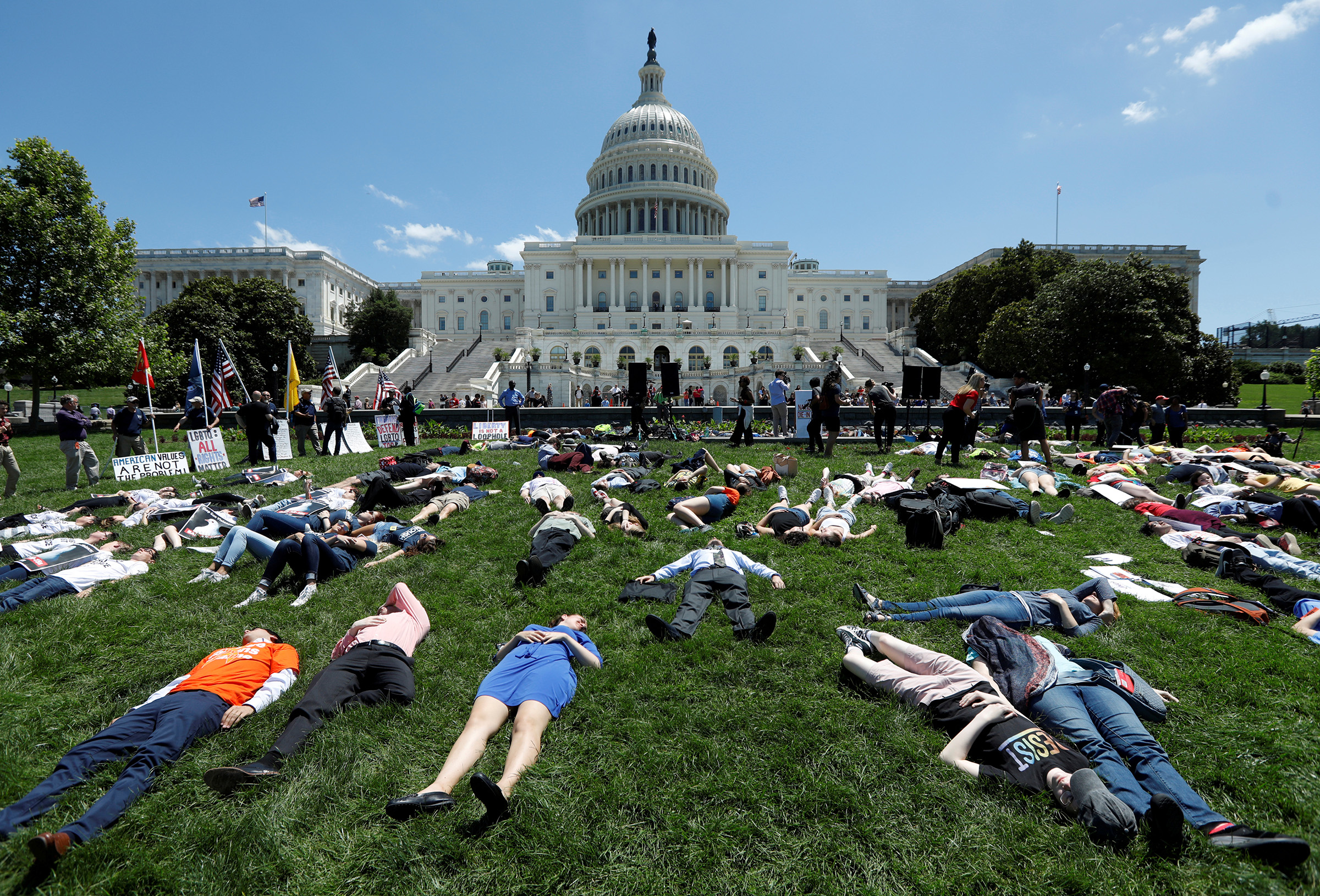
The PLCAA was enacted in 2005 following pressure from the firearms industry, including the National Rifle Association (NRA). It came after a series of lawsuits were brought against major gun makers, including a groundbreaking 1999 case in Brooklyn federal court, where a jury determined for the first time that more than a dozen gun manufacturers were liable in shootings due to negligent distribution practices. Although the verdict was overturned on appeal in 2001, it was still seen as a sign that the gun industry could be made vulnerable in court. “That really shocked the gun companies,” Spitzer says. “That really scared the pants off them.”
In 2005, when gun-maker Sig Sauer, then known as Sigarms, pleaded with the Republican-controlled Congress to pass the PLCAA, it said it had been fighting for its “very survival” against a multitude of “junk and frivolous lawsuits” since 1998. After then-President George W. Bush signed the law, the NRA’s Wayne LaPierre said the Second Amendment is “probably in the best shape in this country that it’s been in decades.” Since then, the law has deterred families from targeting gun makers in court even when they feel the manufacturers were the biggest culprits in a loved one’s death.
Such was the case for Christine Leinonen, whose only child, 32-year-old Christopher “Drew” Leinonen, was killed in the Pulse shooting. “When I looked at my son’s murder,” Leinonen says, “I had to look at what exactly happened and why did it happen and who had a duty to my son and who reneged on that duty.” The gunman was dead, so she focused her blame on his weapons. But when Leinonen realized she’d likely have little success taking on the gun industry, she says she sued Google, Facebook and Twitter instead, alleging the Internet giants played a role in the shooter’s untempered radicalization.
“We can sue almost everybody for anything, yet we cannot touch gun makers,” Leinonen says. “That’s a big reason we have a gun problem.”
A federal judge dismissed the suit in March 2018, which Leinonen expected. “The argument with the Internet was a weak argument, but possible,” she says. “The argument against the gun manufacturer was impossible.”
On Nov. 14, 2018, a federal judge dismissed the civil suit against Gruler, the city and the unnamed officers. The plaintiffs appealed, and Gruler, 42, declined to comment due to the ongoing litigation. His attorneys did not return requests for comment.
In previous remarks, Gruler said he was not at the Pulse nightclub’s entrance when the gunman entered around 2 a.m. because he was pursuing an underaged drinker. He said he didn’t engage the shooter further because he was outgunned. Those who have worked with Gruler say he acted courageously and doesn’t deserve to be sued. “It’s unfair,” says Orange County Sheriff John Mina, who was the Orlando police chief at the time of the shooting. “There’s one person responsible for this, and that person was killed by police at the scene.”
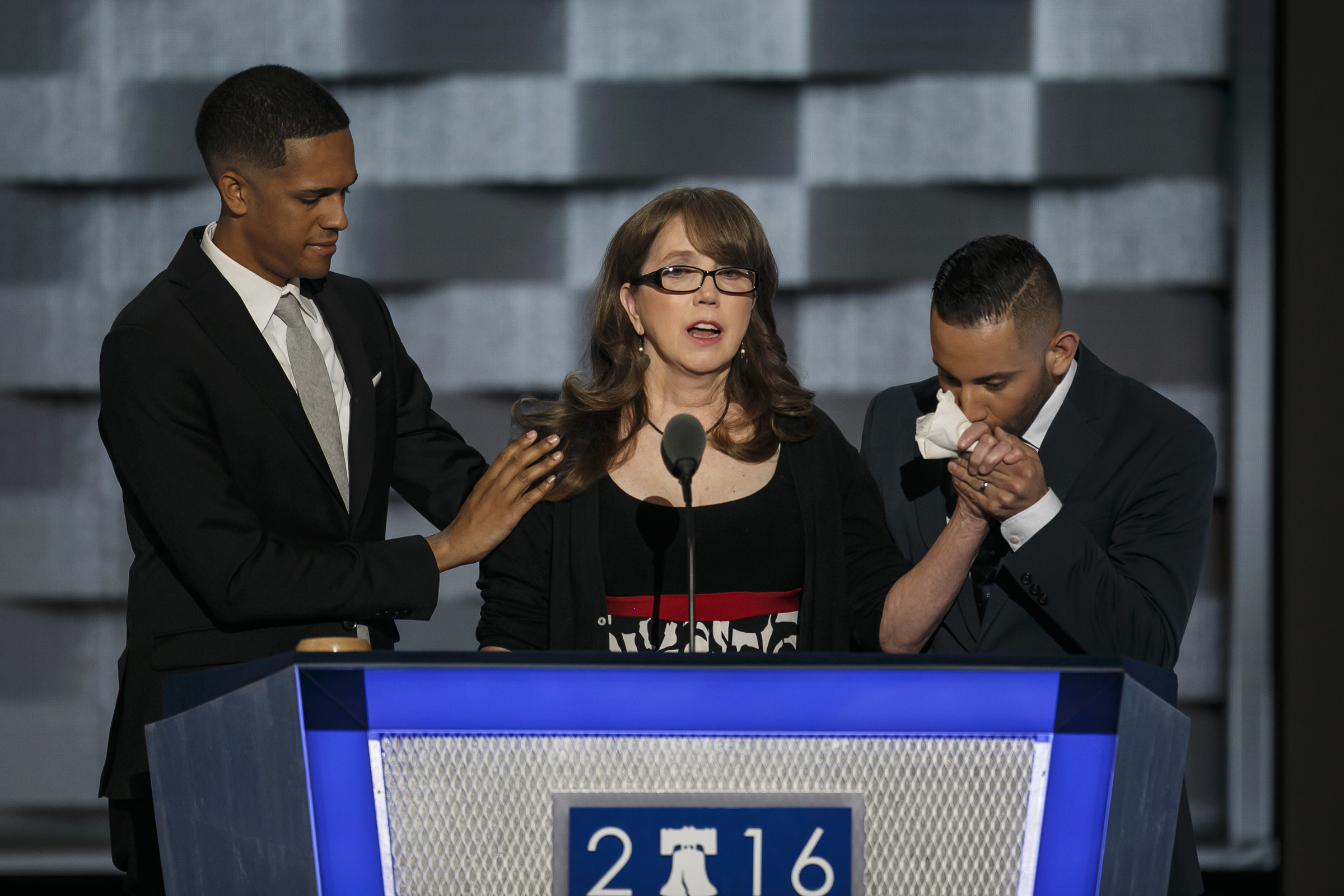
***
Families in mourning have many reasons for pursuing litigation after tragedies. A hunger for justice propels most of them. So does the desire to change laws in the absence of government action. When Rhonda Hart’s 14-year-old daughter, Kimberly Vaughan, died in a massacre at Santa Fe High School in Texas on May 18, 2018, Hart sued the parents of Dimitrios Pagourtzis, who’s accused of killing 10 classmates and teachers with a shotgun and a revolver. The lawsuit against his father, Antonios Pagourtzis, and mother, Rose Marie Kosmetatos, charges that the parents “knew that their son was at risk of harming himself or others” but “did not do even the bare minimum” to make sure their son couldn’t get a hold of the father’s weapons.
For Hart, the main goal of the ongoing lawsuit is to strengthen the state’s gun storage laws. “That would be a way bigger victory,” she says.
The family of Sabika Sheikh, a 17-year-old exchange student from Pakistan who also died in the massacre, are also suing the parents. Sabika, an aspiring diplomat, hid in a classroom closet, where she was shot nine times in the head and right shoulder. “She was really unassuming because she did not grow up in a culture of gun violence in school. She was not prepared for it,” says her cousin, Shaheera Albasit, 27. “That really gets at me.” Within days of burying Sabika back home, her family decided to pursue legal action in America.
Ron Rodgers, the attorney representing the parents of Dimitrios Pagourtzis, who’s now 18, says they kept the firearms locked in a cabinet. “The weapons were not simply placed in the closet or left out for him to take, and they certainly did not entrust the weapons to him, as alleged,” Rodgers said. “As far as they knew, he was a responsible and well-adjusted kid, who had shown them zero interest in shooting.”
But Albasit, Hart and Leinonen maintain the massacres that ripped their loved ones from them were sparked by multiple failings. When that’s the case, they say, all parties should have to answer for them. “There are good reasons for lawsuits to take place,” says Leinonen. “You have to look at the entire puzzle.”
***
Nearly every other manufacturer of a machine that has the potential to kill or maim is forced to think about consumer safety. Major automobile companies have shelled out billions of dollars in settlements over defective airbags, design flaws and other faulty parts. In cases of accidental death or injury on international flights, airlines must pay families a minimum liability, regardless of fault, of about $170,000 per victim, according to the international Montreal Convention agreement. Yet despite roughly 265 million civilian-owned firearms in circulation in the U.S. leading to tens of thousands of deaths every year, no other U.S. industry is as guarded from liability as the gun industry, critics say. So far in 2019, there have been more than 250 mass shootings, according to the Gun Violence Archive, a widely cited nonprofit that counts incidents in which at least four people other than the shooter were injured or killed. That includes two separate tragedies in early August that left more than 30 people dead in El Paso, Texas and Dayton, Ohio within 24 hours.
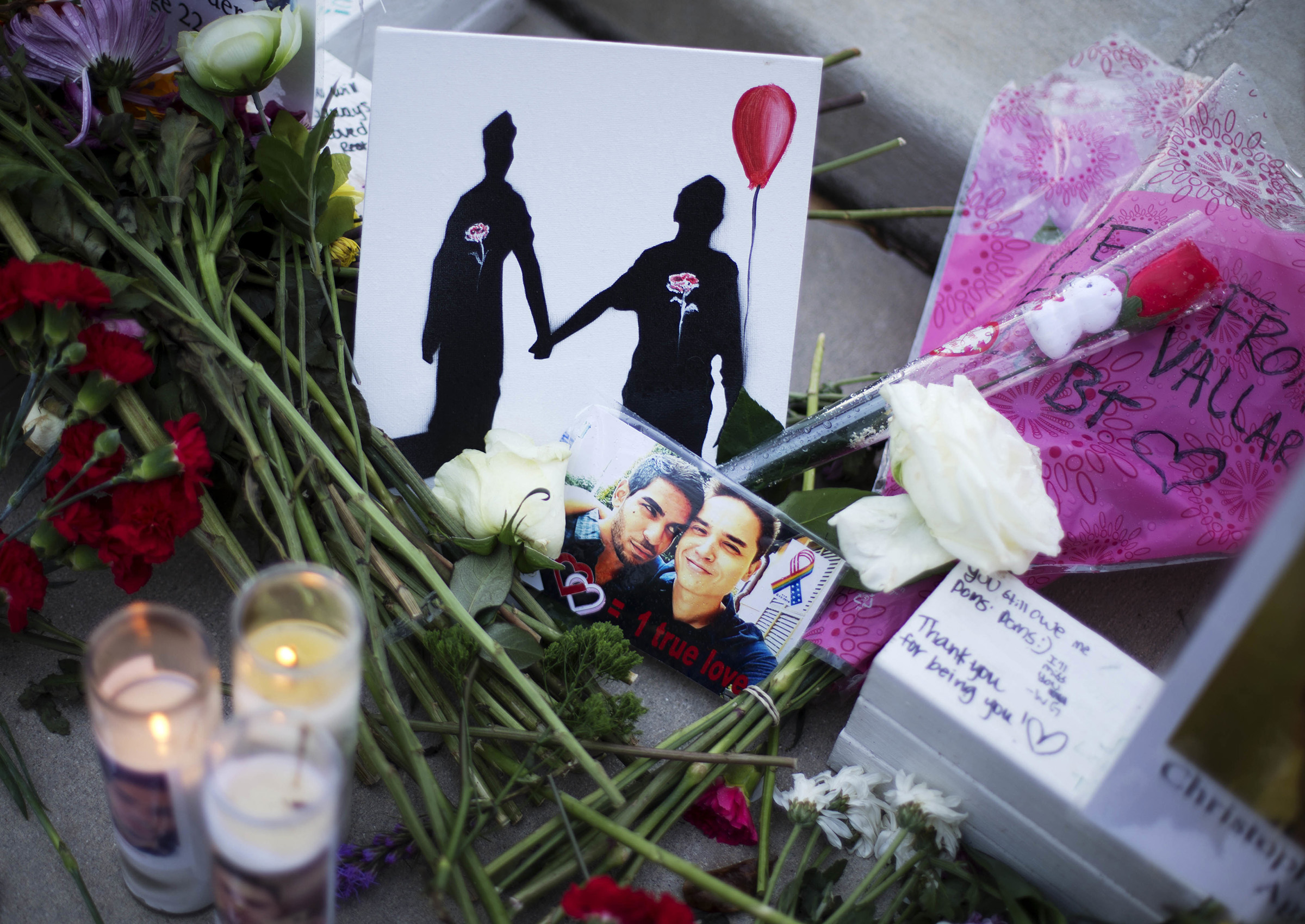
Taking on manufacturers and sellers of firearms and ammunition is technically possible, due to a few exceptions in the law. If a defective weapon causes death or injury, for example, or if a seller or manufacturer is found to have violated a law in the marketing or sale of the product, a lawsuit may be filed. But it’s not easy. Families that try face years in court and, in some instances, risk financial ruin. When Sandy and Lonnie Phillips sued an online company that sold the ammunition a gunman used to murder their daughter and 11 others in a movie theater in Aurora, Colo. in 2012, they lost the case and went bankrupt after a judge ordered them to pay more than $200,000 to cover the defendant’s legal fees—a consequence unique to Colorado. “We knew the risks of bringing the case,” the couple wrote in a HuffPost op-ed. “But we thought it was important to take a stand.” Lucky Gunner, the online ammo dealer that was sued, said it would donate all of the recovered money to “groups that support and defend the 2nd Amendment” but has not yet received any reimbursements.
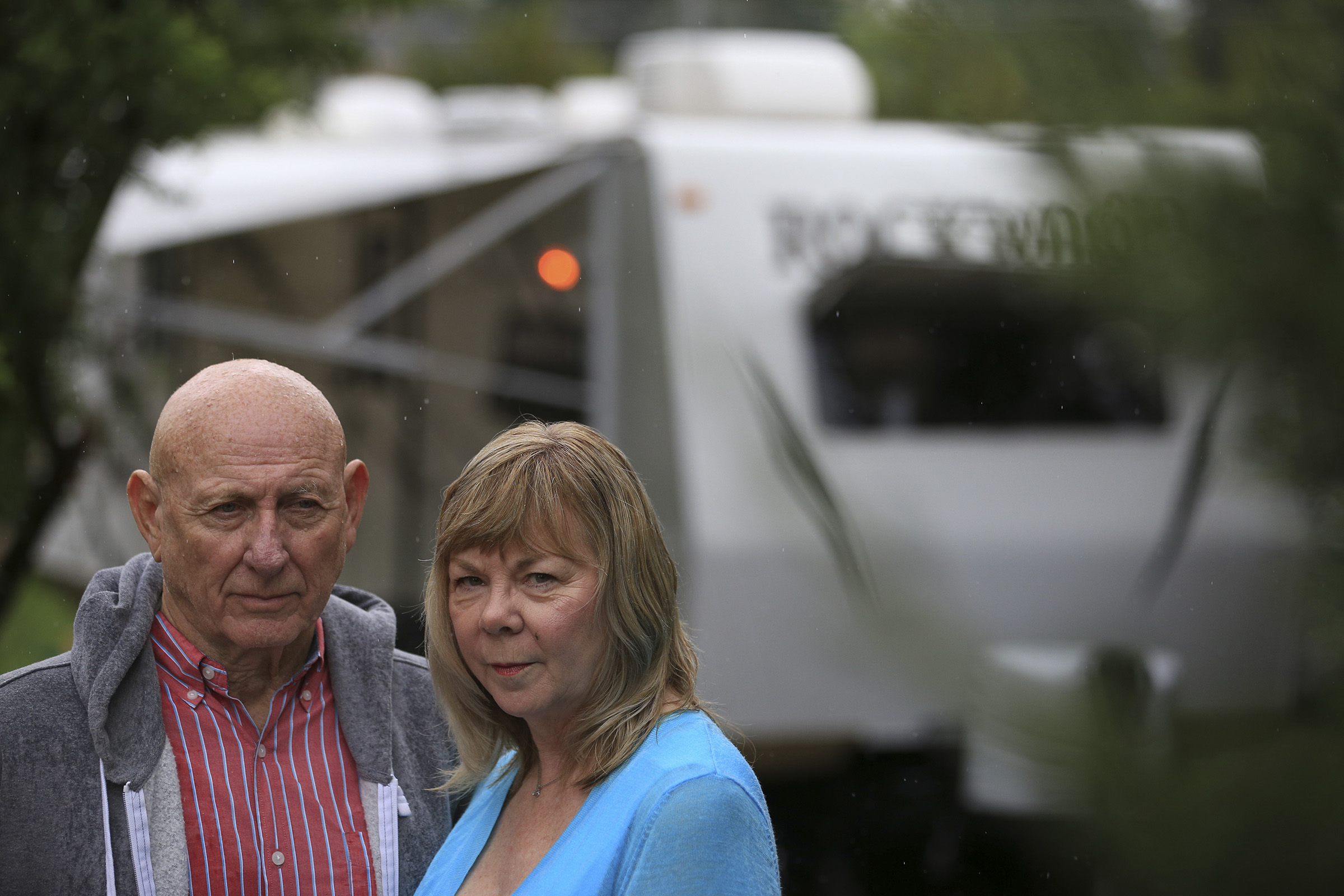
In 2014, two years after a gunman killed 20 children and six faculty members at Sandy Hook Elementary School in Connecticut, nine family members of victims and one survivor took up the challenge of filing a wrongful death suit against gun-maker Remington. They faced the “Mount Everest of legal hurdles,” according to Koskoff. In March, they won a narrow victory when the Connecticut Supreme Court ruled Remington could be sued for how it marketed the rifle the shooter used. The fight isn’t over though. Remington’s lawyers have asked the U.S. Supreme Court to overturn the ruling.
Gun rights groups have slammed the Sandy Hook parents’ lawsuit as a misuse of the legal system. According to Lawrence Keane, senior vice president and general counsel for the National Shooting Sports Foundation, a gun trade group, Remington would be responsible if its products were “negligently and defectively designed,” but not if the product used in a crime was legally sold and not defective. “It’s the same as saying you can’t sue Ford for someone who misuses a car, drunk driving, and kills somebody,” Keane says. “The person who engages in that criminal conduct is responsible, both criminally and civilly.”
If the Sandy Hook parents’ lawsuit is allowed to continue and the case heads to trial, Remington could be forced to provide documents that experts say could yield damaging internal memos—similar to the way a major civil settlement in 1998 forced the tobacco industry to disclose millions of pages of internal communications that revealed deceptive marketing practices. The high-profile case in Connecticut has already prompted a couple to sue 16 other gunmakers, distributors and sellers after their recently engaged daughter, Carrie Parsons, was murdered in the Las Vegas massacre. Parsons, 31, was buried with the bridal bouquet she had picked out for her wedding.
Koskoff hopes the Sandy Hook lawsuit encourages more people to go after gun companies, which he calls the “root cause” of the gun violence problem, and not sue perceived “easier” targets, like security guards. “Whenever victims sue in mass shootings everyone and anybody but the gun industry, it’s nothing but a win for the gun industry,” he says. “They’re laughing all the way to the bank.”
More Must-Reads from TIME
- Cybersecurity Experts Are Sounding the Alarm on DOGE
- Meet the 2025 Women of the Year
- The Harsh Truth About Disability Inclusion
- Why Do More Young Adults Have Cancer?
- Colman Domingo Leads With Radical Love
- How to Get Better at Doing Things Alone
- Michelle Zauner Stares Down the Darkness
Contact us at letters@time.com